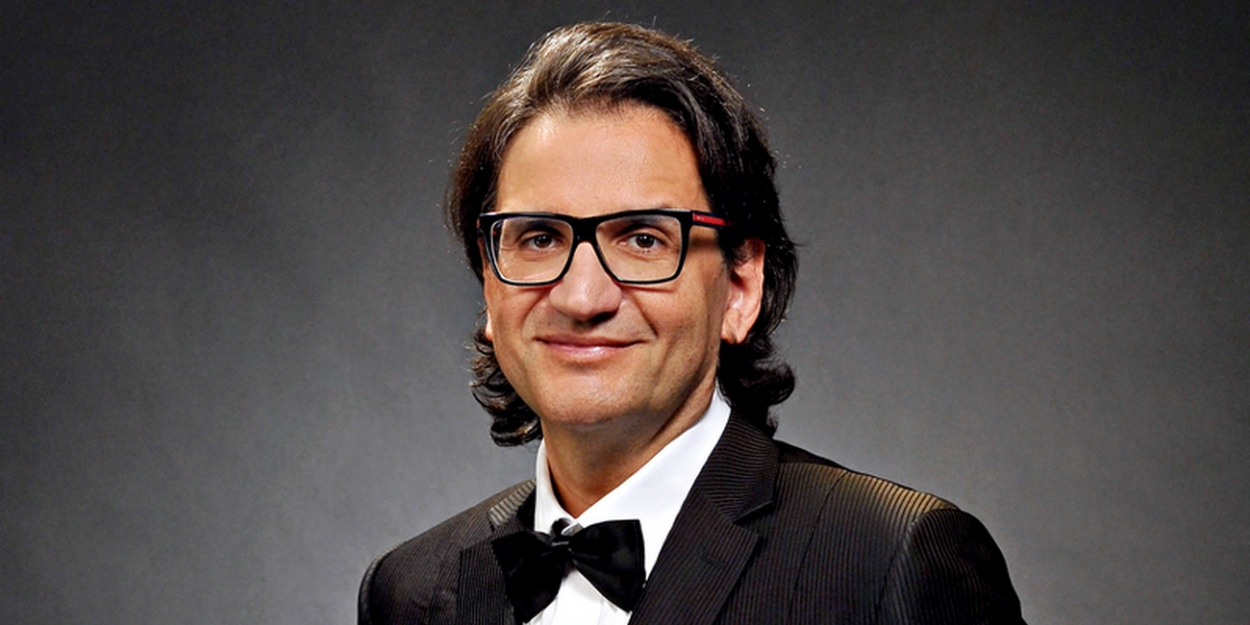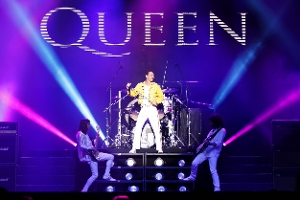Interview: Roberto Molinelli of QUEEN: IT'S A KINDA MAGIC! at Joburg Theatre
We talk with Roberto Molinelli about bringing QUEEN: IT'S A KINDA MAGIC! to the Joburg Theatre.


We spoke to renowned Italian conductor, composer and violist, Roberto Molinelli who will be conducting an orchestra for "QUEEN: IT'S A KINDA MAGIC" which presents a unique opportunity to blend the iconic rock sound of Queen with the rich, dynamic textures of a full orchestra.
Firstly, having toured around the world and performed with and conducted some of the most renowned Symphony Orchestras, can you share a memorable moment from your conducting career that had a significant impact on you as a musician and leader?
Regarding classical and opera music, I’ve conducted concerts with Josè Carreras, a true living legend of our time. We had more than 10 000 people in Istanbul, as well as in other cities and countries, and it’s simply amazing to feel the power and the energy of such a big audience when you are on a podium conducting a huge symphony orchestra.
In pop music, I’ve conducted concerts with Tony Hadley, another singer who made the history of contemporary pop music, writing myself also the arrangements for the shows. Tony is an incredible artist and a wonderful and joyful person too, I had a very special time with him.
Can you discuss a particularly challenging piece you've conducted and how you approached overcoming those challenges?
I’ve written and performed many times the symphonic orchestration of the whole BARCELONA album, by Freddie Mercury with Montserrat Caballè. I particularly aimed to render it as probably Freddie himself would have loved to, with a big symphony orchestra, full choir sections, rock band and, of course, the soloists. For me, BARCELONA album is one of the most varied and interesting works of our time, it goes from opera romances to powerful rock, with Japanese and Gospel sections and an overture that is simply amazing when performed conducting a big symphony orchestra.
How do you balance staying true to the composer's intentions while also infusing your own interpretation and style into a performance?
For classical trained musicians, that’s the ideal aim of an entire career, as the classical or opera music performances are entirely based on written scores, interpreting what the past composers would mean with their indications, as there was no possibility to transmit those indications through recordings. Nowadays, modern genres as pop and rock music can refer to the available original recordings, but the aim remains the same: just like Freddie Mercury, also Chopin, Liszt, Paganini, Mozart, Bach and many others, composed works originally performed by themselves. Present and future performers must of course preserve those original intentions and feelings, but surely adding their own style peculiarities.
Coming back to the QUEEN: IT'S A KINDA MAGIC tribute show accompanied for the first time by the Rock Symphony Orchestra, what challenges do you anticipate in conducting Queen's music with an orchestra and how do you plan to overcome them?
The QUEEN: IT’S A KINDA MAGIC show is extremely powerful, probably the best Queen’s tribute show nowadays. As ever, an orchestra can give even more power and variety, and I wrote the arrangements especially having that target in mind. The orchestra will give emotional depth to the songs, but it also will race with the rock musicians when needed, enforcing the typical bright and virtuoso style of many of Queen’s songs.
Queen's music has endured for decades and continues to resonate with audiences of all ages. How do you plan to ensure that your orchestral interpretation remains relevant and engaging for contemporary audiences?
An orchestra is probably the most ancient ensemble of musical instruments, its history went through all ages and all genres, from baroque to heavy metal. That’s why, in my opinion, the sound of an orchestra is simply timeless: it was used and will be used by composers and it was loved and will be loved by audiences forever.
What do you hope audiences will take away from the experience of hearing Queen's music performed by a full orchestra under your direction?
For me, Queen’s music is the modern classical music, and their works will last forever. On the orchestra’s side, I arranged the songs as I would have done in the classical world: adding counterpoint, countermelodies and details that are never doubling what the rock band plays. So, I hope that audiences will get both: the amazing rock power together with some new and original refined sounds from the orchestra.
Thank you!
Comments

Videos
